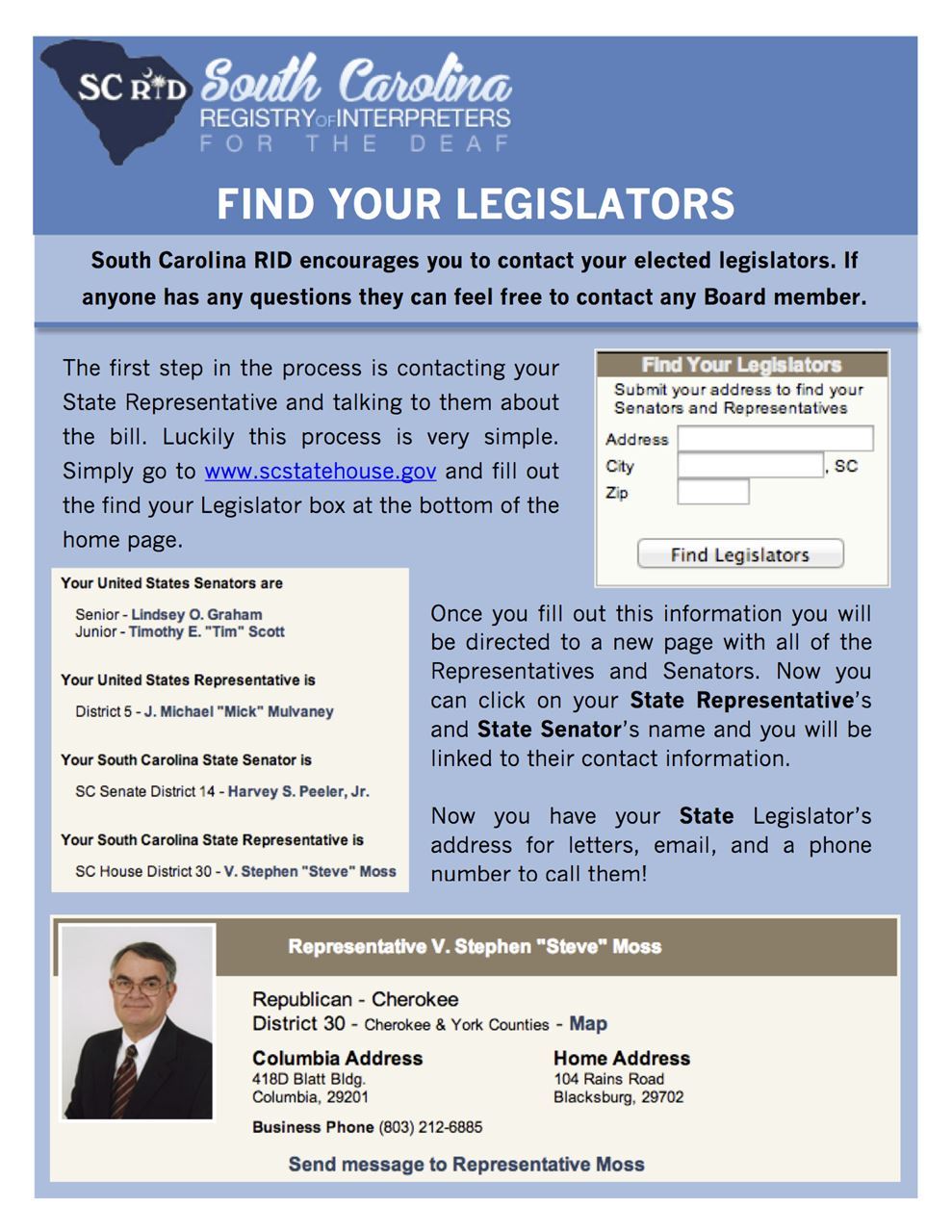|
Bill Summary
The Sign Language Interpreters Act requires that sign language
interpreters working in specific settings are required to demonstrate a
specific level of competence in an effort to protect the public against
unqualified, incompetent and unethical practitioners. This act benefits
the deaf, hard of hearing and general public by setting standards of
qualifications for those who seek to engage in the practice of
interpreting and to protect consumers from unprofessional conduct and/or
malpractice. The bill has been created to help ensure that effective
communication, as protected by the Americans with Disabilities Act and
the Individuals with Disabilities Education Act is able to occur
whenever a citizen interacts via a sign language interpreter.
This
Act creates a Sign Language Interpreters Registry under the Department
of Labor, Licensing, and Regulation requiring sign language interpreters
working in state government, public institutions of higher education,
law enforcement entities, hospital systems and in the judicial
department to hold nationally recognized certification.
This Act
also creates a Sign Language Interpreters Registry under the Department
of Labor, Licensing, and Regulation requiring sign language
interpreters working in a public school district to hold an Educational
Interpreter Performance Assessment (EIPA) level of 3.5 or higher,
successful completion of the EIPA written test, and a sworn statement to
abide by the EIPA Code of Professional Conduct for Educational
Interpreters.

